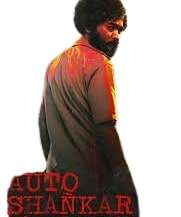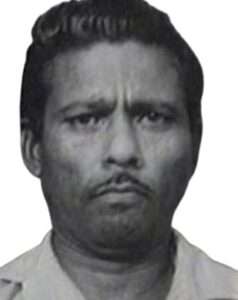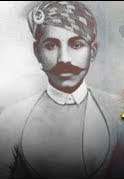Welcome to another informative and engaging blog from wikilifestyles.com.
Introduction: The Mindset of Serial Killers: Unveiling the Dark Secrets
Embark on a spine-chilling exploration into the intricate workings of the human mind with our blog, “Decoding the Mindset of Serial Killers.” Delve into the enigmatic psychology that propels individuals to commit heinous acts, as we unravel the mystery behind serial killers. Brace yourself for a comprehensive journey where we dissect the various types of serial killers, scrutinize their behavior, and examine their familial connections. Join us as we navigate their societal impact and unearth the motivations driving their gruesome crimes.
This riveting exploration isn’t confined to the abstract; we’ll also delve into real-life cases, including those from India, with a particular focus on the chilling events surrounding the Bangalore serial killer. Furthermore, we’ll explore the realm of cinematic representation with a look at movies inspired by these gripping tales, providing insights into the world of serial killer movies. From the intricacies of women serial killers to thought-provoking documentaries, we’re here to captivate, disturb, and enlighten you. Prepare for an immersive journey as we navigate the twisted minds of these notorious individuals, blending real-life accounts with cinematic interpretations. Welcome to the unsettling world of serial killers—where reality meets the silver screen.
Types of Serial Killers: Understanding Motivations, Methods, and Patterns
Serial killers can be classified into various types based on their motivations, methods, and patterns of behavior. Each type possesses unique characteristics that provide insights into their mindset and modus operandi. In this section, we will explore these types from an Indian perspective, highlighting relevant examples and the movies or web series inspired by them.
1. Organized Serial Killers:
Organized serial killers are characterized by careful planning, controlled behavior, and an ability to maintain a normal appearance in society. They exhibit high levels of intelligence and often possess above-average social skills. Examples of organized serial killers in India include:
Raman Raghav:
Infamous for his brutal killings in Mumbai during the 1960s, his story inspired the movie “Raman Raghav 2.0” directed by Anurag Kashyap.

2. Disorganized Serial Killers:
Disorganized serial killers display impulsive and chaotic behavior. They lack careful planning and may exhibit signs of mental illness. Their crimes often leave behind a disarray of evidence. An example of a disorganized serial killer from India is:
Stoneman:
Operating in Kolkata during the 1980s, the Stoneman killer targeted homeless people. The mystery surrounding this case has been the inspiration for multiple movies and documentaries.

3. Visionary Serial Killers:
Visionary serial killers are driven by delusions or hallucinations, often believing they are compelled by higher powers or voices to commit their heinous acts. Although relatively rare, these individuals can be extremely dangerous. One notable example from India is:
Auto Shankar:
Operating in Chennai during the 1980s, Auto Shankar claimed to have been guided by a goddess. His story has been portrayed in the Tamil web series “Auto Shankar.”

4. Mission-Oriented Serial Killers:
Mission-oriented serial killers believe they have a mission or purpose to eliminate a specific group of people they deem unworthy or detrimental to society. They often feel justified in their actions. While this type of serial killer is less common in India, globally recognized examples include:
The BTK Killer (Dennis Rader):
His story has been the inspiration for the movie “B.T.K.” and several documentaries exploring his meticulous planning and execution of his mission.

5. Power/Control-Oriented Serial Killers:
Power/control-oriented serial killers derive pleasure and a sense of dominance from the control they exert over their victims. Their motivation is rooted in the need to exert power and control over others. An example of a power/control-oriented serial killer from India is:
Charles Sobhraj:
Known as the Bikini Killer, Charles Sobhraj targeted Western tourists in Southeast Asia during the 1970s. His story has been depicted in various movies and series, including “Main Aur Charles” and “The Serpent.”

Movies and web series inspired by these types of serial killers have provided chilling portrayals of their crimes and the subsequent investigations. These visual adaptations offer a closer look into the psyche of these criminals and the dedicated efforts to bring them to justice.
It is important to note that while these classifications provide a framework for understanding serial killers, some individuals may exhibit characteristics that overlap multiple types. Additionally, the portrayal of these killers in movies and web series may involve artistic liberties and fictional elements to enhance the storytelling experience while remaining inspired by real-life events.
Behavior Psychology of Serial Killers:
What Occurs Within the Mind of a Serial Killer: Understanding the Psychological Aspects
The mind of a serial killer is a complex and disturbing realm, influenced by a variety of psychological factors. To gain insight into their actions, it is essential to examine their personality traits, childhood experiences, and the role of mental disorders such as psychopathy. In this section, we will explore these psychological aspects, focusing on real-life examples from an Indian perspective.
1. Personality Traits:
Serial killers often exhibit specific personality traits that contribute to their murderous tendencies. These traits may include a lack of empathy, manipulative behavior, narcissism, and a propensity for violence. These characteristics enable them to justify and carry out their heinous acts without remorse. One example from an Indian perspective is Charles Sobhraj, Known as the Bikini Killer, Charles Sobhraj possessed a charming and manipulative personality. He exploited his victims’ trust and manipulated them for his own gain.

2. Childhood Experiences:
Childhood experiences play a significant role in shaping the mindset of a serial killer. Many serial killers have experienced traumatic events during their formative years, such as abuse, neglect, or witnessing violence. These experiences can lead to deep-seated anger, resentment, and a distorted perception of relationships. John Wayne Gacy was an infamous American serial killer who terrorized the Chicago area in the 1970s. Born on March 17, 1942, in Chicago,

Gacy had a troubled childhood that played a significant role in shaping his dark and violent path. He grew up with an abusive and alcoholic father, who often belittled and physically assaulted him. These experiences left deep scars on Gacy’s psyche, instilling feelings of anger, frustration, and a longing for control. Moreover, Gacy struggled with his sexuality, grappling with a conflicted sense of self in a society that was less accepting at the time. These factors, coupled with a complex psychological makeup, eventually led Gacy to indulge in his darkest fantasies, seeking power and dominance through heinous acts of violence. The horrific events of Gacy’s childhood laid the foundation for his transformation into one of history’s most notorious serial killers.
An example from an Indian perspective is Surinder Koli, a notorious Indian serial killer infamous who operated in Noida during the early 2000s, was profoundly influenced by his traumatic childhood. Born in 1971 in Uttarakhand, Koli endured poverty and a broken family, which left him emotionally scarred. Neglect, domestic violence, and the absence of parental guidance shaped his formative years.

Growing up in such adverse conditions, Koli developed deviant and violent tendencies. As an adult, these tendencies manifested in a series of horrifying crimes. It is apparent that Koli’s troubled upbringing, marked by deprivation and exposure to violence, played a significant role in shaping his disturbed mindset and propelling him towards his path as a serial killer.
3. Mental Disorders:
Psychopathy is commonly associated with serial killers, characterized by a lack of empathy, remorse, and manipulative behavior. However, not all serial killers are diagnosed psychopaths. Other mental disorders, such as antisocial personality disorder or sadistic tendencies, may also play a role in their behavior. One example from an Indian perspective is Raman Raghav, operating in Mumbai during the 1960s, displayed psychopathic traits, including a lack of empathy and remorse for his brutal crimes.

4. Fantasies and Escalation:
Serial killers often harbor violent fantasies that fuel their desire to commit murder. These fantasies provide a psychological outlet for their deep-seated desires, and the act of killing becomes a means of fulfilling these fantasies. Over time, these fantasies may escalate, driving them to commit increasingly brutal acts.

The infamous “Son of Sam” serial killer, was driven to commit his heinous acts by escalating fantasies. Growing up with feelings of rejection, Berkowitz developed a disturbing fascination with fire. Believing he received commands from a neighbor’s dog, his delusions justified his violent actions. The attention from media fueled his desire for power, leading him to target and shoot couples in parked cars. This cycle of escalating fantasies and violence propelled Berkowitz down a dark path, ultimately making him one of history’s most notorious serial killers.
An example from an Indian perspective is Thug Behram , part of the infamous Thuggee cult in India during the 19th century, participated in ritualistic murders driven by a religious belief system and shared violent fantasies.

Understanding the psychological aspects of serial killers provides valuable insights into their distorted thinking and motivations. It allows us to grasp the complexities of their disturbed minds and the factors that drive them to commit acts of extreme violence.
It is important to note that not all individuals with similar personality traits or childhood experiences become serial killers. While these factors may contribute to their development, other societal and environmental factors, such as access to weapons, social isolation, or a lack of intervention, can also play a role in pushing someone towards becoming a serial killer.
By studying the psychological aspects of serial killers, we can strive to identify early warning signs, implement preventative measures, and provide necessary support and intervention to individuals at risk of following a path of violence and destruction. It is through this understanding that we can work towards a safer society, free from the grip of these disturbed individuals.
Serial Killers and Family Dynamics: Exploring Personal Connections and their Impact:
Contrary to popular belief, serial killers often have relationships with their families. This section will delve into the complex dynamics between serial killers and their family members, shedding light on the peculiarities of these personal connections. It will also examine the impact of familiar Comments in relationships on the development of a killer’s mindset, using real-life examples of world-famous serial killers.
- Ted Bundy: Ted Bundy, one of the most notorious serial killers in history, maintained relationships with his family throughout his criminal activities. He had a close relationship with his mother and siblings, who were unaware of his sinister double life. Bundy’s ability to compartmentalize his actions and project a normal facade to his family demonstrates the complex nature of these relationships,just watch this YouTube video explaining TedBundy’s former girlfriend about how he was her family
Video Courtesy : YouTube
Charles Sobhraj, an Indian serial killer, had a unique attachment to his family. Despite his criminal tendencies, Sobhraj maintained close ties with his family, relying on their support and utilizing their connections. Though his family may have been unaware of his dark activities, their presence provided Sobhraj with a sense of stability amid the chaos of his life as a serial killer,
Video Courtesy : YouTube
These examples demonstrate that serial killers can successfully blend into their families and communities, leading seemingly ordinary lives. The existence of family relationships does not guarantee that they will be aware of or complicit in the killer’s activities. Serial killers often display exceptional skills in compartmentalizing their violent tendencies and presenting a facade of normalcy to their loved ones.
The impact of familial relationships on the development of a killer’s mindset is multifaceted. While some serial killers may have experienced dysfunctional or abusive family environments that contributed to their violent inclinations, others may have grown up in seemingly ordinary households. The factors influencing their development into killers can extend beyond familial relationships, including childhood trauma, genetic predispositions, and societal influences.
Understanding the complex dynamics between serial killers and their families provides insight into the intricate nature of these relationships. It highlights the ability of individuals to lead dual lives, presenting a normal face to their families while engaging in horrifying acts. By studying these dynamics, we can strive to identify warning signs, support families in crisis, and work towards early intervention to prevent future tragedies.
Serial Killers: Unveiling the Lasting Impact on Society and Media:
Serial killers not only inflict horror upon their victims but also leave a permanent impact on society as a whole. This section will delve into their perception by society and the media, exploring the fascination and fear they evoke. We will examine real-life experiences from an Indian perspective and other countries to understand the societal implications of their crimes and the efforts made by law enforcement to capture and comprehend them.
1.Perception by Society:
Serial killers are often viewed as the embodiment of evil and become notorious figures in the public eye. Society grapples with the horrifying acts committed by these individuals, leaving a lasting impact on collective consciousness. In India, one example that shook the nation was the case of Raman Raghav, also known as “Psycho Raman,” who terrorized the streets of Mumbai in the 1960s. His crimes sent shockwaves through society, leading to increased fear and vigilance. Similarly, in other countries,
Infamous serial killers like Ted Bundy in the United States or Jack the Ripper in the United Kingdom became household names, provoking widespread fear and a heightened sense of vulnerability among the public.
Video Courtesy : YouTube
2.Media Fascination and Fear:
Serial killers have long fascinated the media, capturing headlines and dominating news cycles. Their gruesome acts and mysterious motives generate sensationalism, feeding public curiosity. The media’s portrayal of these killers often adds to the fear and fascination surrounding them. In India, the media extensively covered the case of the Nithari killings, where the serial killings of children in Noida shocked the nation.
Video Courtesy : YouTube
Media coverage played a crucial role in creating awareness, but it also intensified the fear and outrage felt by society. Internationally, movies, books, and documentaries further perpetuate the fascination with serial killers. Films like “Silence of the Lambs” and “Zodiac” captivated audiences, fueling both fear and intrigue
3.Societal Implications:
Serial killers have profound societal implications beyond the immediate terror they inflict. Their crimes erode the sense of safety and trust within communities, leaving a lasting impact on people’s lives. Society becomes more cautious, implementing heightened security measures and demanding justice for the victims. The case of Charles Sobhraj, known as the “Bikini Killer,” had far-reaching consequences not only for his victims but also for the public’s perception of safety while traveling.
Understanding the Motives: Why They Become Serial Killers
What drives an individual to become a serial killer? This section will delve into the factors that contribute to the development of a serial killer’s mindset, using the aforementioned cases from Kerala as examples. By examining these cases, we can gain insights into the motives that propel someone towards committing unimaginable acts of violence.
1.Childhood Upbringing:
Childhood experiences, particularly traumatic events, can have a profound impact on an individual’s psychological development. In the Jolly Joseph case, it was reported that. Her desire for a luxurious living from her childhood onwards and her father would criticize her for her ease with money, saying that she would just be happy blowing it up. On two instances, Jolly was detained by her father for stealing. money from home the first time, and second stealing gold bangle of a classmate

Similarly, in the case of Ripper Jayanandan, According to his family, ‘Ripper’ Jayanandan, a Class 8 dropout, was born and raised 10 km away from Puthenvelikkara, in Thrissur’s Poyya, a village known for picturesque backwaters and shrimp farms,he had a troubled upbringing, These experiences may have contributed to his distorted worldview and propensity for violent acts.

2. Fantasies and Power Dynamics:
Serial killers often harbor disturbing fantasies that involve exerting control and power over others. These fantasies may manifest from feelings of inadequacy, a desire for dominance, or a need to exert control due to perceived injustices in their own lives. Cyanide Mohan, for instance, was known to manipulate his victims by offering them false promises of marriage or employment. By fulfilling his fantasies, he gained a sense of power and control over vulnerable individuals.

One chilling example of the interplay between fantasies and power dynamics in Indian serial killings is the case of Cyanide Mohan. He was a notorious serial killer active in Karnataka, India. Mohan lured his victims by promising them a better life, exploiting their vulnerabilities and dreams. His modus operandi involved befriending women, gaining their trust, and eventually poisoning them with cyanide. By preying on their aspirations and hopes, Mohan manipulated his victims, satisfying his own twisted fantasies while exerting control and power over their lives.
3. External Influences:
External factors, such as media exposure and societal influences, can also contribute to the development of a serial killer’s mindset. The portrayal of violence in movies, books, or other forms of media can shape an individual’s perception of acceptable behavior, blurring the line between fiction and reality. It is crucial to recognize that while media exposure alone does not cause someone to become a serial killer, it can influence and reinforce existing tendencies or provide inspiration for their actions.
Ted Bundy, an infamous American serial killer of the 1970s, was influenced by external factors such as books and movies. Consuming violent pornography and crime literature, Bundy’s fascination with these materials desensitized him to violence and fueled his fantasies. While these external influences played a role in his transformation into a cold-blooded killer, it is crucial to remember that Bundy was ultimately responsible for his heinous acts.
Additionally, social and cultural factors within a community can play a role. In some cases, serial killers may feel marginalized or disconnected from society, leading to a desire for power, control, or revenge.
Understanding the motives behind serial killers’ actions is a complex and challenging task. It requires a multidisciplinary approach involving psychology, criminology, and sociological perspectives. By studying the cases mentioned, we can gain insights into the psychological factors, childhood experiences, fantasies, power dynamics, and external influences that contribute to the development of a serial killer’s mindset.
It is important to note that no single factor can fully explain why someone becomes a serial killer. Each case is unique, and a combination of various factors interacts to shape an individual’s path towards violence. By gaining a deeper understanding of these motives, society can work towards early identification, intervention, and prevention, ultimately striving for a safer and more compassionate world.
Unveiling the Stories: Some Noteworthy Infamous Serial Killers
In this section, we delve into the chilling stories of infamous serial killers from recent times. We explore real-life cases that have captured the world’s attention, including notable cases that have occurred in India. Prepare yourself for a glimpse into the dark minds of these ruthless killers.
1. The Dandupalya Gang: A reign of terror in India
The Dandupalya Gang, operating in Bangalore, India, was a notorious criminal group known for their extreme violence. While not traditional serial killers, their acts shed light on the mindset of individuals capable of such brutality. The gang would deceive vulnerable individuals and families, gaining entry before subjecting them to torture, rape, and murder. Their crimes instilled fear and vulnerability within the community. Led by police officer Alok Kumar, law enforcement agencies tirelessly worked to apprehend the gang, revealing their lack of empathy and distorted thirst for power.
Eventually convicted and sentenced, the Dandupalya Gang’s case serves as a stark reminder of the dark depths within those capable of extreme violence, emphasizing the importance of understanding, prevention, and support for the victims.
2. The BTK Killer: A Tale of Deception and Brutality
Dennis Rader, known as the BTK Killer, instilled terror in Wichita, Kansas, through his brutal and methodical murders. His sadistic nature was further amplified by his taunting messages to the media and law enforcement, heightening the fear and mystery surrounding his crimes. Rader meticulously selected and tormented his victims before ultimately killing them.
Despite his attempts to elude capture, advancements in forensic technology and relentless law enforcement work led to his arrest in 2005. During his trial, the lack of empathy displayed by Rader became evident as the chilling details of his crimes were revealed. Ultimately, he was convicted of ten counts of first-degree murder and is now serving life sentences without parole. The case of the BTK Killer underscores the importance of persistent law enforcement efforts and understanding the psychological factors that contribute to such disturbing individuals. The capture and conviction of Rader provided closure for the victims’ families and the community, demonstrating that even the most elusive serial killers can face justice.
The Zodiac Killer: Unraveling an Enigmatic Reign of Terror
The Zodiac Killer, an enigmatic and iconic figure in American history, instilled fear during his reign of terror in California during the late 1960s and early 1970s. His crimes, marked by brutal attacks on both men and women, baffled law enforcement due to the lack of a discernible pattern or clear motive.
The Zodiac Killer’s taunting letters and ciphers, sent to the media and authorities, added to the mystery. Despite extensive efforts to decode the messages, they remain unsolved. The unresolved case and the killer’s unidentified identity have sparked ongoing fascination, inspiring investigations, books, documentaries, and movies. The enduring legacy of the Zodiac Killer serves as a chilling reminder of the impact of unsolved crimes and the complexities of criminal investigations.
4.The Serial Killing of Jolly Joseph: A Chilling Tale of Deception and Betrayal
Jolly Joseph’s shocking crimes unfolded over 14 years, causing widespread disbelief in Kerala, India. Known as the “Cyanide Jolly” or the “Koodathayi Serial Killer,” she was responsible for the deaths of at least six individuals, using cyanide as her weapon. Jolly manipulated her victims, including family members, for personal gain and inheritance.
The impact on the community was profound, shattering trust and tearing families apart. Jolly’s arrest, trial, and subsequent conviction in 2021 revealed the calculated nature of her crimes. The case serves as a reminder of the capacity for evil and the importance of unwavering dedication to justice.
Noteworthy Movies: Portrayals of Serial Killers in Indian Languages and Hollywood
Serial killers have long captured the imagination of filmmakers, resulting in gripping and horrifying portrayals on the silver screen. In this section, we explore notable movies that depict the dark world of serial killers, both in Indian languages and Hollywood.
1. Raman Raghav 2.0 (2016)
A chilling Hindi movie inspired by the real-life serial killer Raman Raghav,The intense portrayal of a psychopathic killer and the psychological cat-and-mouse game with a cop
Video Courtesy : YouTube
2. Memories (2013)
A Malayalam psychological thriller revolving around a former cop investigating a series of serial killings,The exploration of the killer’s psyche and the impact on the protagonist
Video Courtesy : YouTube
3. Psycho (1960)
A timeless Hollywood classic directed by Alfred Hitchcock,The iconic portrayal of a disturbed killer and the suspense-filled narrative that unfolds
Video Courtesy : YouTube
4. The Silence of the Lambs (1991)
A critically acclaimed thriller featuring Hannibal Lecter, a cannibalistic serial killer,The complex relationship between a young FBI agent and the incarcerated Lecter
Video Courtesy : YouTube
5. Zodiac (2007)
A gripping drama based on the real-life Zodiac Killer case,The meticulous investigation and the lingering mystery surrounding the identity of the killer
Video Courtesy : YouTube
Dahad Webseries (2023)
A captivating new web series, available on Prime Video since May 12, 2023, follows Sub-Inspector Anjali Bhaati (played by Sonakshi Sinha). Set in a quaint village in Rajasthan, the series unravels a puzzling case where twenty-seven women have inexplicably vanished, seemingly unnoticed by the locals. However, everything changes when Bhaati discovers a common thread connecting the cases, leading her to suspect the presence of a serial killer. This revelation shifts her investigation from mere disappearances to a meticulously planned and calculated scheme, transforming her perspective on the matter.
Video Courtesy : YouTube
Two remarkable documentaries that deserve mention are currently available for streaming on Netflix.
1.Indian Predator: The Butcher of Delhi
Courtesy : YouTube
2. The Diary of a Serial Killer | Indian Predator : Season 2
Courtesy : YouTube
3.Curry & Cyanide – The Jolly Joseph Case
Conclusion: The Mindset of Serial Killers: Unveiling the Dark Secrets
In conclusion, the mindset of serial killers is a dark and twisted realm that continues to captivate and horrify us. By understanding the types of serial killers, their behavior psychology, their relationships with family, and their impact on society, we gain insight into the complexities of their disturbed minds.
Exploring the infamous cases and notable movies inspired by these killers offers a chilling reminder of the depths of human depravity. As we strive to comprehend the reasons behind their transformation into monsters, we also reaffirm our commitment to prevent such atrocities and protect society from the horrors that lie within the minds of these killers.
Please share your valuable comments in the box below. If you enjoyed this post, there’s another article of similar nature available. You can access it by clicking on the following link.
FAQ :
Q. What is a serial killer?
A serial killer is an individual who commits a series of murders over a period of time, often with a specific motive or pattern.
Q. What are the different types of serial killers?
Serial killers can be classified into various types, including organized, disorganized, visionary, mission-oriented, and power/control-oriented killers.
Q. What drives someone to become a serial killer?
The motivations behind becoming a serial killer can vary, including factors such as childhood trauma, power dynamics, fantasies, and mental disorders.
Q. Are serial killers always psychopaths?
While many serial killers exhibit psychopathic traits, not all of them are diagnosed psychopaths. However, psychopathy is commonly associated with their behavior.
Q. How do serial killers behave with their own families?
Serial killers can display seemingly normal behavior with their families, often hiding their dark side and maintaining a façade of normalcy.
Q. What role does society play in the development of serial killers?
Society can contribute to the development of serial killers through various factors, such as social isolation, cultural influences, and exposure to violence.
Q. Are there any famous serial killers in recent times in India?
Yes, there have been notorious serial killers in recent times in India, such as the Dandupalya Gang, whose gruesome crimes shook the nation.
Q. What are some famous movies based on serial killers in Indian languages?
Movies like “Raman Raghav 2.0” (Hindi) and “Memories” (Malayalam) portray the chilling world of serial killers in Indian languages.
Q. Which Hollywood movies are inspired by real-life serial killers?
Movies like “Psycho,” “The Silence of the Lambs,” and “Zodiac” are examples of Hollywood movies inspired by real-life serial killers.
Q. Why are people fascinated by serial killers?
The fascination with serial killers stems from the morbid curiosity to understand the depths of human psychology and the desire to explore the darker aspects of human nature.
